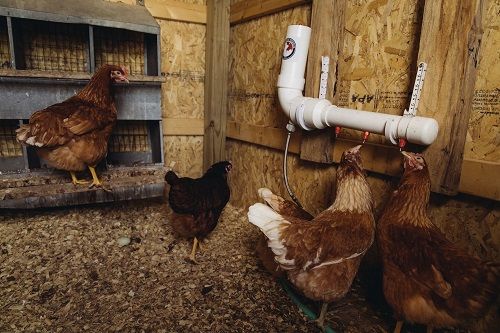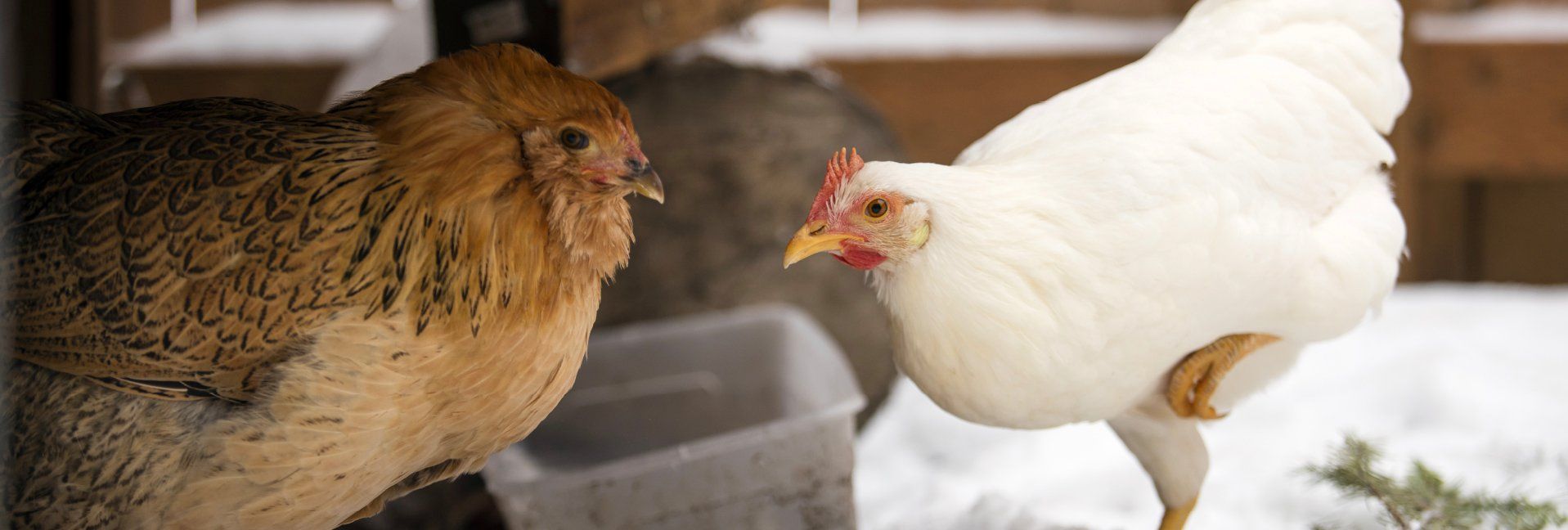Home Rule
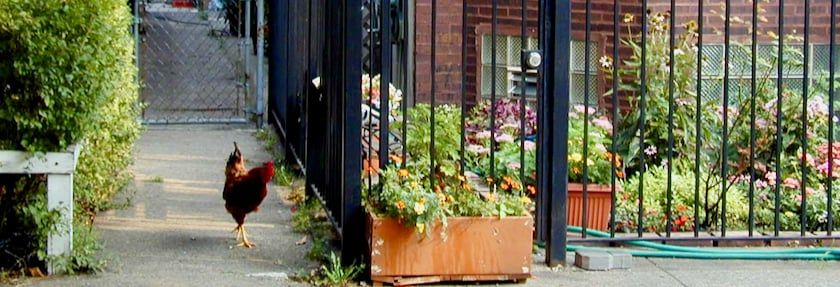

By helping change poultry laws, it can actually help you keep chickens
Raising and owning backyard poultry for a hobby or for food has exploded in the past few years. Unfortunately, there is an extensive “knowledge gap” among owners. Problems with feeding, disease, housing, hot and cold weather can plague new owners.
One area often overlooked (and that can get you and your flock into serious trouble) is local laws and ordinances. Many towns, cities, and counties have laws prohibiting live poultry altogether, as well as limiting the number, species and sex that you can own. Many have nuisance noise ordinances that specifically call out poultry.
Don’t run a-fowl of the law
Before you buy some chickens, it is imperative that you look into the local laws to determine what you can own so not to run afoul of the law. (Sorry about that.) You could find yourself in court, with angry neighbors, and possibly even legal fees.
Your town will more than likely have one of three types of laws regarding owning of poultry; not allowed, allowed but limitations, or no laws.
Of those three types mentioned, the “allowed but with limitations” version means the town has already outlined what you can own and probably other items such as housing and care. Follow those laws and you’ll probably be okay.
But I’m a responsible poultry keeper!
Oh, you’d like no laws about owning poultry? This could become the proverbial slippery slope.
For example, say you have 4 hens, a nice place to keep them, and they do not make a lot of noise. If somebody down the road has 3 hens and 3 roosters that roam other backyards besides their own and crow all day starting around 5:00 a.m. guess what’s going to happen when someone complains? Your chickens stand a good chance of getting lumped in with the troublemakers; soon, no one gets to have chickens.
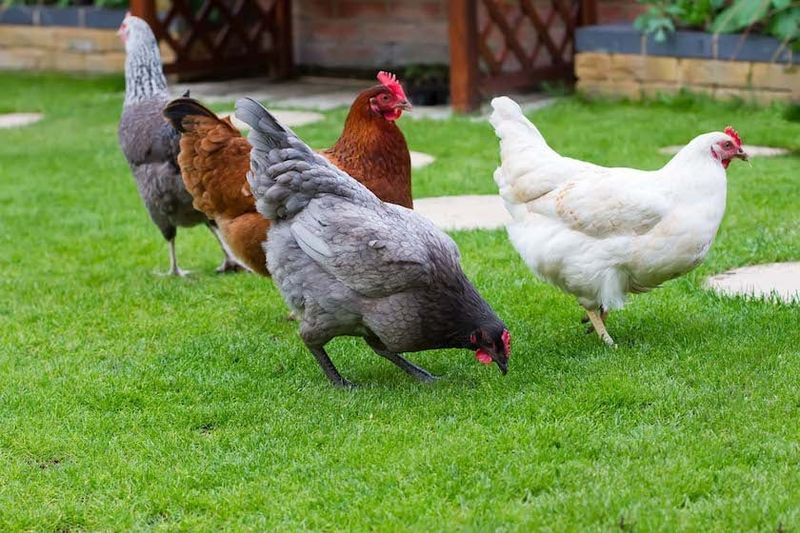
People will get heated when you tell them they can’t have something on their own property, but remember you cannot encroach on someone else’s health, wellbeing, or happiness. If someone claims your rooster’s crowing is giving them headaches, most likely you're going to lose.
Consequently, the number one rule o when owning urban poultry (besides following the law) is to be a good neighbor and this cannot be emphasized enough. This is the same for large farms with thousands of chickens to someone who only owns a few.
Being a good neighbor and chicken owner will go a long way to keeping everyone around you happy, and therefore keeping your chickens.
Laws should set guidelines
In all likelihood, any chicken ordinance or law will have to go before the city council or maybe to vote for all the citizens, depending on locality. Let’s examine what should those laws look like and what should be included and not included.
First and foremost, the number and sex of chickens allowed per residence should be spelled out. The best advice here is keep the number small, fewer than 5 or 6 and no roosters.
Let’s repeat that: no roosters.
It does not matter that they are pretty or you like the crowing, no roosters. In small backyard flocks they serve absolutely no purpose. So, fewer than 5 or 6 hens seems like a small number, but for most families that should be more than adequate to serve their needs—raising hens for eggs means 4 to 5 eggs a day should be adequate for most families.
A smaller flock size also keeps your profile lower and makes the chickens less noticeable. They are still not animals traditionally associated like dogs and cats with urban settings, so keeping fewer is best.
Make their housing sound
Housing requirements should be addressed in the law, providing some standards for housing construction. This requirement need not be for an elaborate hen palace, but some standards for general construction.
Examples of what to include would be minimum square inches per bird inside the coop and in the outside run, if present. For most backyard poultry, 1 to 2 square feet of inside coop space per hen is adequate. Outside runs should be attached to the coop and could be less than 10’ by 10’, providing plenty of room for 6 hens.
Housing should also include requirements for roof materials (leaky roofs lead to wet litter which leads to bad odors). The final integral part on housing is coop location. Check local zoning for “setback,” the minimum distance the coop should be from the property line and other residential dwellings. A typical distance is 10 feet from a property line and at least 20 feet from a neighboring residence.
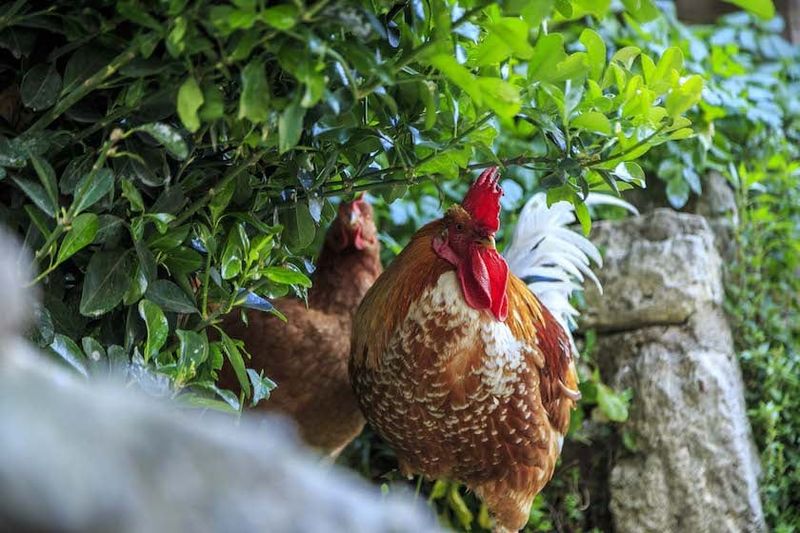
I would also recommend having some sort of registration for all flock owners. The primary purpose for this is during a disease outbreak.
During a major disease outbreak, officials will have to go door-to-door to see who has chickens so that the birds can be tested if need be. A mandatory flock registration simply speeds up this process and eases the burden on local, state, and federal authorities.
If requiring a permit or registration, fees should be none or as low as possible.
What a waste
Owners will also have to consider pest and waste management, and this means chicken waste as well as carcasses from any chickens that died (many states or towns will not allow you to bury animals). In most towns, bagging carcasses and disposing in trash is the preferred method of carcass disposal.
Requirements can creatively address manure management—compost bin construction and operation for example, or maybe a collective compost of several nearby flock owners. The goal is to minimize odor, flies, and pests. Manure left piled up will attract all of these and make for some unhappy neighbors.
This ties well into pest management. Chickens, manure, eggs, and feed all attract unwanted pests or predators. Some sort of mandatory pest control plan should be in place for all backyard flocks.
This could be as simple as requiring all feed to be stored in a sealed container (i.e. garbage can with lid). Fly strips could be required and made to change on a specific schedule. Pests also carry disease, so keeping these controlled in all flocks will help everyone.
Legislating care, regulating traffic
Other laws to consider are laws for daily feeding and watering. Yes, this seems unnecessary, but some flock owners may not feed and water them for whatever reason. Remember, there are no kennels to take chickens to when you go out of town for the weekend. Some wording that chickens must be cared for every day should be written into the ordinance.
My final suggestion is to not allow the sale of eggs from the home. Selling eggs from your backyard flock in town is going to attract a lot of traffic to your house, potentially upsetting neighbors.
Remember, it only takes one upset neighbor and your chickens could be gone.
In the end, these chickens are for your own personal use or consumption, not as a business.
I know this sounds like a lot, but aren’t these the things good flock owners should be doing already? All putting them into the law does is set a reasonable standard for everyone.
Tags:Hands-on Help

Chicken Whisperer is part of the Catalyst Communications Network publication family.








